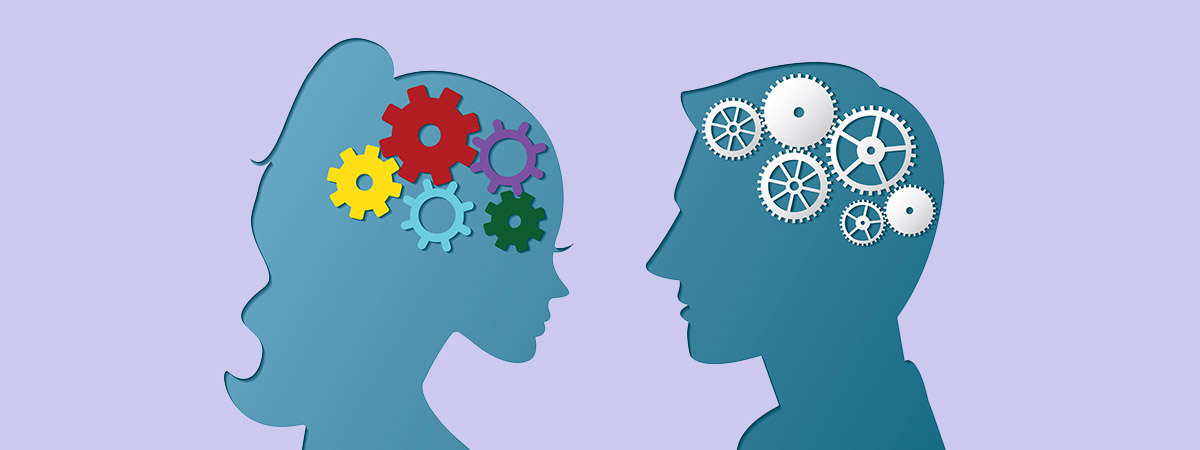
What You Should Know About Gender Differences In Substance Use Disorders Near Boston
People with substance use disorders (SUDs) feel compelled to take addictive substances like drugs and alcohol. These mental disorders impact both men and women, but are there differences in how the two genders experience SUDs? The latest studies say “Yes.”
Being aware of the gender differences in substance use disorders near Boston can help you determine when someone you care about -- male or female -- requires addiction treatment. It also helps addiction treatment providers, like Evolve Recovery Center Millbury, know how to support patients. If you haven’t pondered how substance use disorders affect men and women before, consider the following details.
Do Women And Men Experience The Same Symptoms Of SUD?
Men and women usually experience the same SUD symptoms. These include:
- Feeling compelled to consume a habit-forming substance daily or several times a day
- Getting intense impulses to consume that distract you from other pastimes or obligations
- Needing bigger amounts of a substance to experience the desired effect
- Struggling to control how often or how much you use
- Spending in excess of what you can afford on substances
- Prioritizing getting a supply over other commitments
- Not fulfilling commitments because of alcohol or drug use
- Withdrawing from loved ones and social situations to keep using
- Continuing to consume the substance even if you are aware it is creating problems
- Partaking in hazardous or illicit endeavors to attain or take the substance
- Falling into withdrawal if you try to quit using
- You are unsuccessful in each bid to quit
But, habit-forming substances impact female individuals at a speedier rate, so a substance use disorder advances quicker in women. Women, as a result, have a greater likelihood of suffering acute symptoms before getting support.
What Are A Few Noteworthy Differences In Substance Use Disorders Between Men And Women?
According to current studies about substance use, men will experience substance use disorders differently than women. In general:
- Men are more prone to consume illegal drugs or misuse prescribed medications.
- Women are more prone to misuse prescription opioid painkillers, anti-anxiety drugs, and sleeping tablets.
- Men have increased rates of dependence for alcohol and drugs.
- Fatality rates for women with alcohol disorders are 50 to 100 percent higher than men.
- Women and men are just as likely to develop a substance use disorder.
Even though men are more likely to consume illicit substances, women are more likely to misuse prescribed drugs. This may be due to the fact that women are more likely to get treatment for pain, sleep disorders, and anxiety. And although more men take dependency-causing alcohol and drugs generally speaking, female anatomy puts women at higher risk for deadly diseases prompted by substance use. But it’s essential to note that everyone who ingests addiction-causing alcohol or drugs has an equal chance of encountering an SUD, and any SUD may be devastating or even deadly.
Do Men And Women Seek Addiction Treatment At The Same Frequency?
One noteworthy gender difference in substance use disorders near Boston concerns treatment. More men search for addiction treatment than women. Women are frequently main caregivers and might not have someone to look after their loved ones if they start treatment. They might fear losing their young ones if they divulge their addiction. Men are not as likely to have caregiving responsibilities that prevent them from seeking residential care services.
Once they start treatment, lasting recovery is challenging for all people. Despite this fact, men have a better shot of accomplishing it because they are less likely to relapse. Women relapse at greater rates because they are more inclined to suffer from a severe SUD or co-occurring disorders that obstruct recovery. They might also struggle to find addiction facilities that tailor treatment to their exact needs.
These details should not dissuade any person from seeking treatment. Knowing these facts helps addiction treatments facilities, families, and communities better comprehend how to aid those working through SUDs. If you need help recovering from drug or alcohol addiction, call a local, respected treatment center right away.
Find Treatment That Knows About Gender And Addiction Near Boston
Men and women have different needs during SUD treatment. Evolve Recovery Center Millbury always tailors our care to your unique requirements. If you are searching for a welcoming spot to stay and progress toward addiction recovery, call us at 508-475-5676 or send in the contact form on this page. We reply right away, at all hours. Get in touch now; we’re standing by to help.
